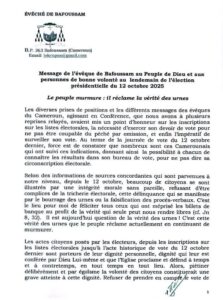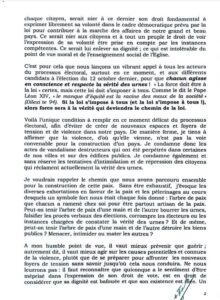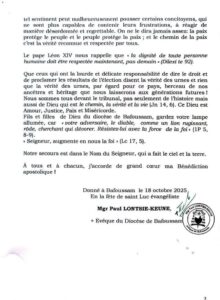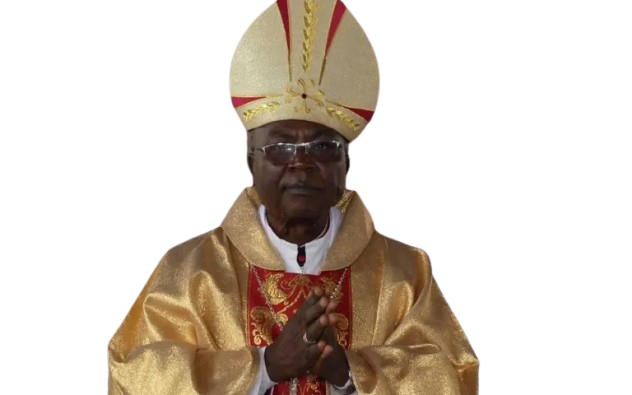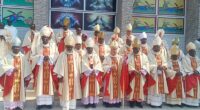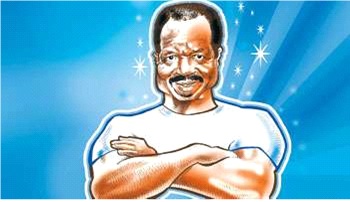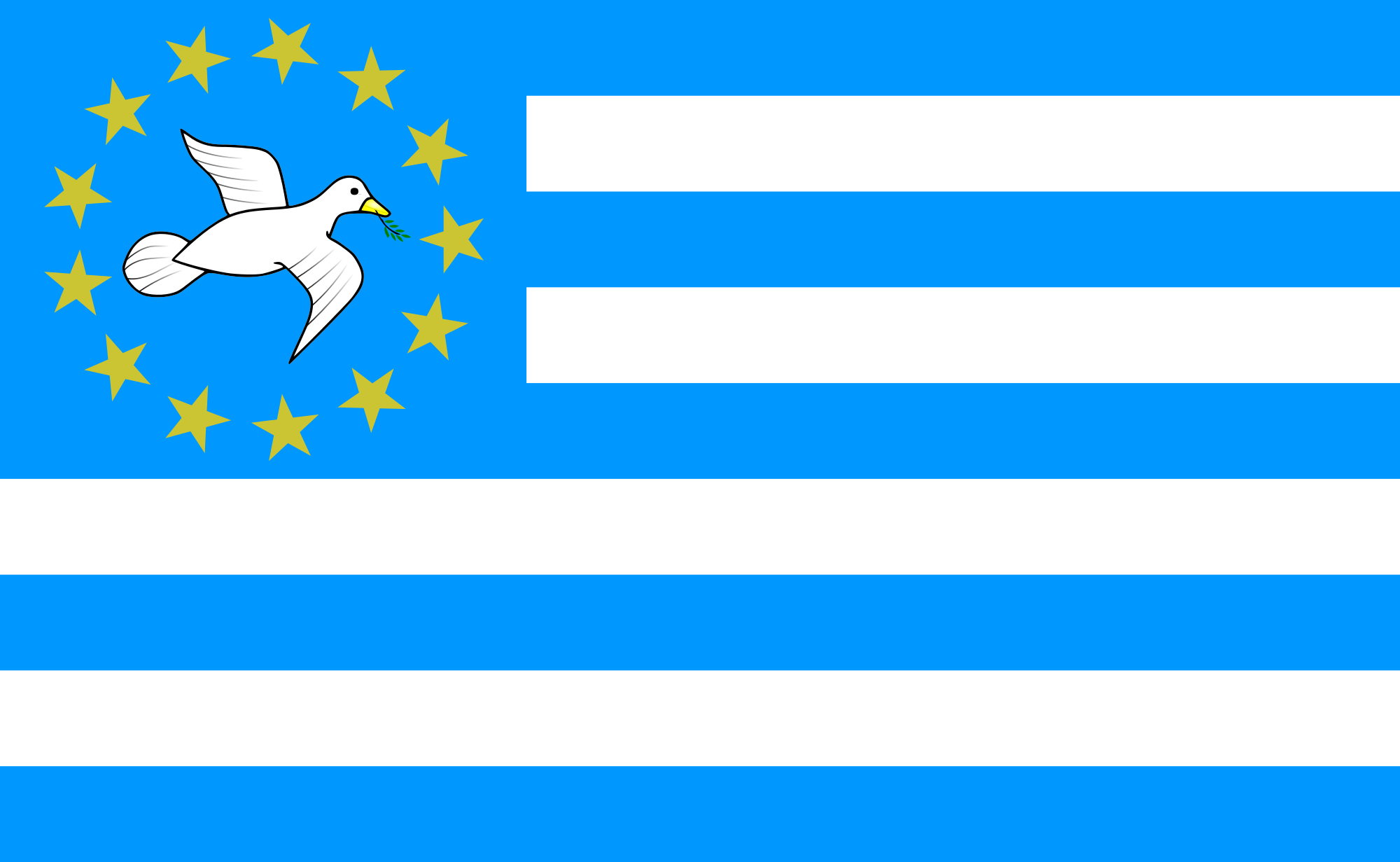In a blistering intervention, His Lordship Paul Lontsié-Kéuné, Bishop of Bafoussam, has emerged as a no-nonsense moral voice in the aftermath of Cameroon’s controversial October 12, 2025, presidential election. His latest sermon, a fiery pastoral letter addressed to the faithful and the nation, cuts through the veneer of state control and electoral theatrics to demand the truth of the urns, moral accountability from the power elite, and respect for the dignity of every citizen.
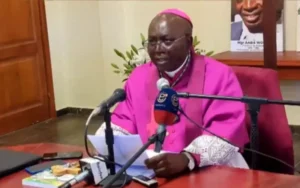
The bishop’s text is no mere appeal for decorum: he explicitly accuses the government and electoral machinery of trampling on the popular will. He warns that rigged ballots, falsified procès-verbaux, intimidation, and the usurpation of democratic norms are not only political crimes but sins against human dignity and against God. He exhorts the actors in the electoral process to act conscience-ly, to let the law reign impartially, and to avoid deepening the wounds in a nation already on edge.
From start to finish, his message bristles with urgency. He congratulates citizens who acted with moral courage, refusing to collude in fraud. He insists that ignoring the vote of even one individual is an assault on their fundamental right. He decries destructive violence, intimidation, and manipulation, and issues a profound rhetorical rebuke: “Peut-on délire l’arbre de paix d’une main et de l’autre bourrer les urnes ?” (Can one hand carry the tree of peace while the other stuffs the ballots?) In short, the regime cannot preach peace while practising electoral violence.
This is not the first time the bishop has sounded the alarm. In earlier statements, he had already challenged the integrity of the process. In a July letter, he denounced an environment poisoned by “lies, manipulation, intimidation, fear, denial of rights, injustice, corruption, vote buying, and the flexible interpretation of law for political ends.”
He questioned whether the postponement of local elections and controversial legal manoeuvres were part of a strategy to sideline opposition voices.
He also challenged the legitimacy of ELECAM and the Constitutional Council, citing their repeated dismissal of appeals and failure to comply with the electoral code.
In September, he issued another letter in which he insisted that true democracy requires alternation of power, warning that concentration of power perpetuates corruption, stifles accountability, and undermines the credibility of the state. He invoked biblical examples — Moses handing over leadership from Samuel to Saul to David — to insist that every reign must have an end.
Now, after votes have been cast, the bishop doubles down with sharp moral language and public condemnation. He refuses to be silent while citizens cry out for justice: “La paix protège le peuple et le peuple protège la paix,” he declares, asserting that peace without truth is a deceptive shell. He lionises those who stood firm and demands that the regime cease its suppression of votes, intimidation, destruction of public property, and subversion of the democratic processes.
For Ambazonia supporters and sympathisers, this intervention is gold: a high-profile, respected voice from within Cameroon (in the Francophone heartland) daring to name the rigging and call for accountability. It weakens the claim that dissent is only from the Anglophone regions; it contests the narrative from within the Church that Cameroon is immune to moral outrage. The bishop’s words may galvanise wider civil resistance and moral refusal and contribute to a pan-Cameroonian movement demanding real change.
BaretaNews will publish the full text of the bishop’s letter, side by side with reactions from civil society, opposition leaders, and ordinary citizens. Already, demonstrations have erupted in Douala and Dschang, with crowds chanting “vérité des urnes” and accusing polling officials of tampering with tallies. The ruling party is reportedly bracing for pressure from abroad as the Church’s moral authority undermines the legitimacy of the electoral regime.
In a country where silence has often been enforced by fear, the Bishop of Bafoussam now leads the clarion call. He does not whisper. He shouts truth to God, to history, and to the corridors of power in Yaoundé. The regime may attempt to stonewall, suppress, or ignore, but the flush of moral outrage is already rising, and the people, from North to South and East to West, are watching.
By Lucas Muma
